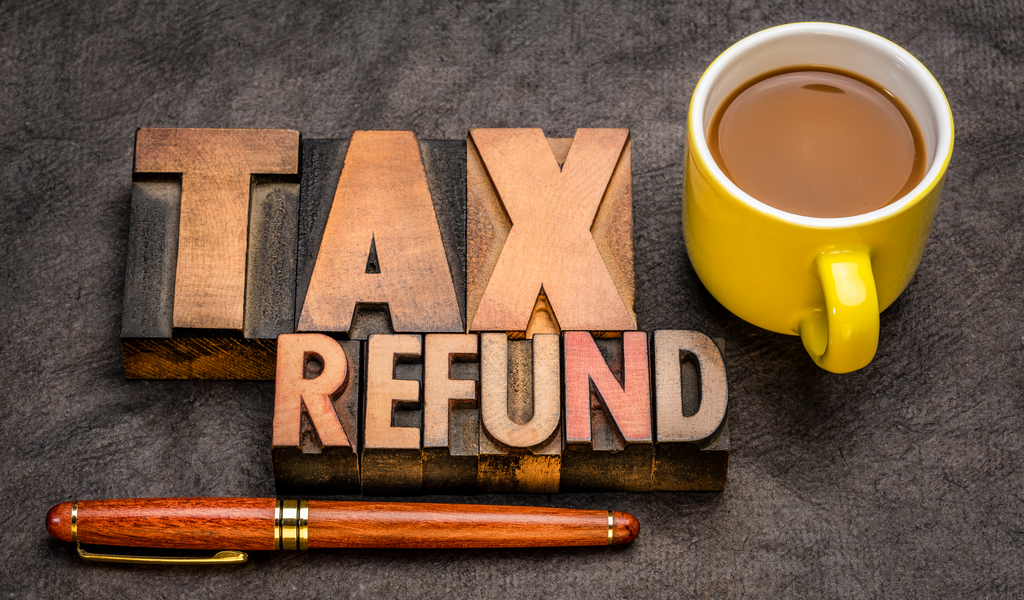It’s that time of the year again! Yes, we’re talking about the tax filing season.
This is a time that gives a lot of people anxiety because they have to file their taxes accurately and meticulously so they do not get in trouble with the law, and at the same time, do not end up paying more than they have to.
However, there is a bit of a silver lining. Tax filing season also comes with tax refund season! If you’ve been paying your taxes throughout the year, say through your employer deducting a certain amount from your paycheck every month, chances are that you may have ended up overpaying. Now’s the time to claim back what you rightfully deserve!

In fact, did you know that the United States government issues billions of dollars of tax refunds every year? The IRS has reported that it has already processed over 38 million refunds so far totaling $129.2 billion in 2022, and there is still time for people to file. Tax refunds for early filers have been as high as $3,535 this year, thanks to several tax breaks that the government issued over the past couple of years due to the COVID-19 pandemic.
To ensure that you get the maximum Earned Income Tax Credit that you are eligible for, it is important to be thorough and vigilant when applying for them. Tax refunds are typically processed within 2-3 weeks of filing, but postponements are possible if everything isn’t in order. Here are 5 mistakes that you should avoid on your tax refund application to make sure that there are no delays.
Not Using a Tax Software
As humans, it’s only natural that you are prone to mistakes. However, your taxes are one place where you do not want to make any, because you may have to go back and amend it later, which will tack on more time to your claims being accepted. Since math mistakes are one of the most common errors made on tax return forms, according to the IRS, using tax software will help you avoid them.
There are also a number of claims and deductions that can be made to your tax returns, and it may not be possible to gather them all single-handedly. An Interactive Tax Assistant can help you navigate all such credits so you can make use of everything that you are eligible for.
Filing a Paper Return
As with pretty much everything else these days, you can also file your tax returns online – and the IRS recommends this too. Not only is this one of the fastest ways to get your returns, but the IRS generally accepts e-filed returns within 48 hours. Filing electronically can also help you avoid mistakes such as unsigned forms which can cause serious delays to your refund.
Being in a Hurry
While it’s always to get the important things, like filing your tax returns, done early, it’s better not to rush things. One of the major reasons is that hurrying to file your tax returns could result in possible errors. You can go back and amend it later on but you may be hit with risks such as a higher probability of getting audited. It is also likely that the IRS may put holds on your returns if you made additional claims such as the Earned Income Tax Credit (EITC) and Advance Childcare Tax Credit (ACTC) until it can get all its information in order.

Not Completing Your Childcare Tax Credit Paperwork
Childcare tax benefits have been expanded further this year, meaning that you can claim up to $8000 for one dependent and $16,000 for two or more dependents. Millions of American families have been receiving child tax credit payments throughout 2021, and therefore, may see smaller returns this year. If you are one of them, there is some additional paperwork that needs to be filled along with your tax return. Make sure to complete all the necessary documents and do it accurately on your first go so that there aren’t any delays on your tax returns.
Not Accounting for Cryptocurrency
If you have made investments in cryptocurrency, it is important that you account for them in your tax returns. For tax purposes, the IRS considers cryptocurrency holdings to be “property”. This means that it is taxed the same way as all your other assets such as stocks, gold, or actual real estate properties. However, simply buying crypto and having them in your possession does not make it taxable. Once you begin trading it either for goods and services or start earning money from it in some form, you have to declare them on your tax returns.



